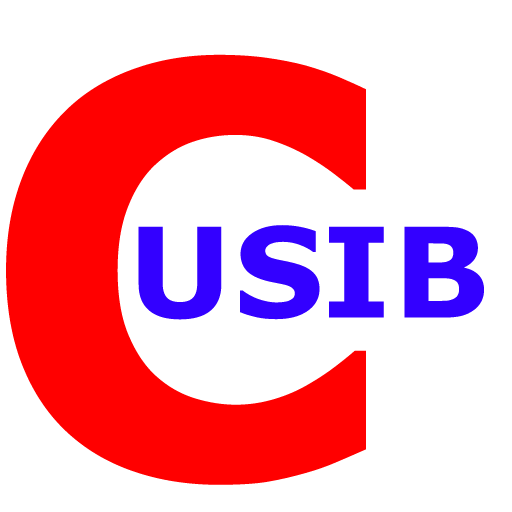FOR IMMEDIATE RELEASE
March 17, 2014

CUSIB Urges BBG To Keep Radio As Part of Multimedia Strategy
The independent Committee for U.S. International Broadcasting (CUSIB – cusib.org) sent a letter to the Broadcasting Board of Governors (BBG) urging the bipartisan federal board to keep radio as part of a multimedia outreach strategy that would serve all foreign audiences — billions of poor people around the world and especially those persecuted by repressive regimes or suffering other forms of political, economic or social oppression.
The CUSIB letter was addressed to the Broadcasting Board of Governors’ Shortwave Committee, chaired by BBG Governor Matt Armstrong, but it also deals with larger management of resources and programming issues at the BBG, the International Broadcasting Bureau (IBB), and BBG’s media entities.
CUSIB Director Ted Lipien explained that the volunteer NGO which supports U.S. taxpayer-funded media entities believes strongly in using the most modern methods of digital program delivery where such methods can be effective, but CUSIB also advocates on behalf of individuals, groups, and large parts of the world’s population for whom radio is the easiest, safest, and least expensive way of obtaining uncensored news and information, including information about the United States and its policies. This is especially important in times of international crises when persecuted human rights activists need to receive news without risking being discovered by the authorities and war and political refugees need easy and inexpensive access to critical information.
Lipien also said that CUSIB is concerned not only with program delivery but also with program content and how program delivery fits in with the programming policy and news reporting by BBG entities. Excellence in journalism should not be abandoned to promote greater use of program delivery platforms that do not fit well with serious news reporting and may not have a desired mission impact. From the perspective of U.S. taxpayers who pay for these programs, radio for foreign audiences is inexpensive to produce while offering rich news content that can be made part of a successful multimedia international news outreach strategy, Lipien said.
CUSIB strongly supports independence of BBG’s grantee organizations and opposes efforts to centralize news reporting and management as contrary to Congressional intent and highly damaging to specialization and efficiency of each media entity.
CUSIB is concerned by the 37% growth of IBB positions in the last seven years while numerous news programs and programming positions at Voice of America (VOA) and grantees were being cut. CUSIB also sees the push for centralization as leading to possible further increases in the IBB non-programming budget, which at 34% in FY2014 already consumes the largest part BBG’s Congressional budget allotment.
Appeal by the Committee for U.S. International Broadcasting (CUSIB) to the Broadcasting Board of Governors’ Shortwave Committee
This is an appeal by the Committee for U.S. International Broadcasting (CUSIB) to the Broadcasting Board of Governors’ Shortwave Committee to save BBG shortwave and medium wave radio broadcasts to strategic regions of the world. Radio can be the lifeline for poor people in many places in the world where they don’t have access to television, Internet access, or electricity. Radio is cheap, and unlike internet users, radio listeners cannot be tracked and monitored.
CUSIB urges the BBG Shortwave Committee to strengthen both radio and television broadcasting as a vital news generating asset of a multimedia expansion strategy. We adamantly object to any plans by the Broadcasting Board of Governors to comply with suggestions or requests to cut or eliminate funding from Voice of America and Radio Free Asia’s shortwave radio broadcast services to China and Tibet. Cuts to these radio broadcasts will effectively undermine the purpose of several Congressional mandates to inform the people in China and Tibet by providing them with news broadcasts that promote freedom and democracy.
During this 25th Anniversary of the Tiananmen Square Massacre, it is unbelievable that the BBG would consider eliminating shortwave radio to China. We urge the BBG Shortwave Committee to respect the importance of shortwave radio to freedom fighters in China like the Tiannamen Mothers, who still seek justice for their children. We urge you to consider the impact of shortwave radio on the lives of democracy and labor seekers inside China, dissidents who languish in China’s Laogai system, and victims of China’s one-child policy.
We urge the BBG Shortwave Committee to realize the magnitude that this contemplated change in shortwave radio broadcasts will have in Tibet. Since China maintains a tight control of media and public expression in Tibet, we need to appreciate that shortwave wave broadcasts have a direct impact of hope on the lives of many Tibetans. The tragic number of self-immolations in Tibet continues to rise as a desperate attempt to bring awareness of the plight of the Tibetans. Cutting their lifeline to the United States of America would be reprehensible.
CUSIB would like to extend a formal invitation to the BBG Shortwave Committee to meet with some of our Board Members to hear first-hand their testimony about how hurtful cuts to shortwave and medium wave broadcasts would be to people in various regions of the world that rely upon these broadcasts. We would be delighted to coordinate a convenient time to welcome you to New York for a forum on this serious topic.
Respectfully,
Ann Noonan
Executive Director
Committee for U.S. International Broadcasting
www.cusib.org
(646) 251-6069

